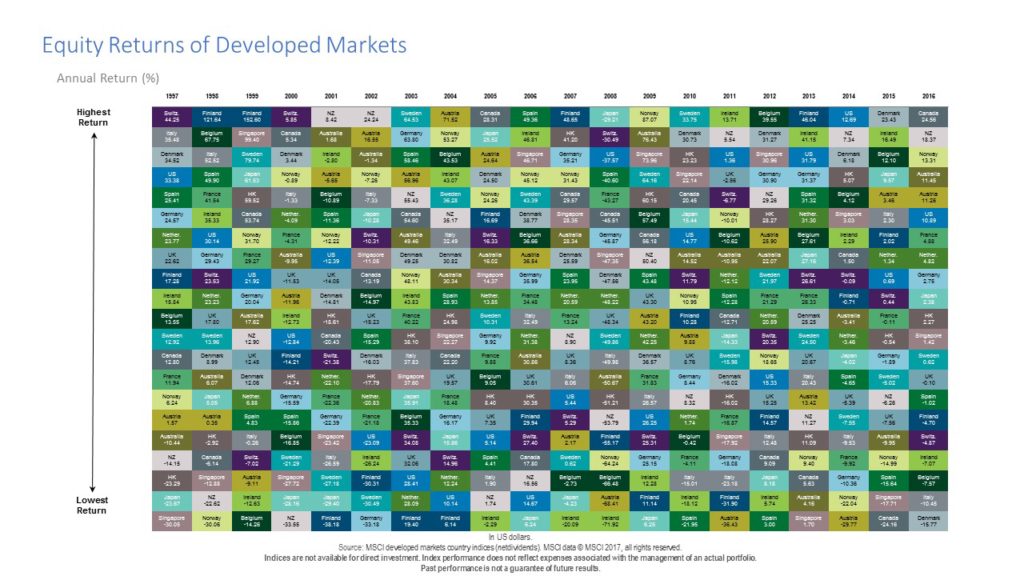Pandemic Pivots
If the pandemic has proven anything, it’s that life-altering occasions—both those we experience firsthand and those that merely present themselves as possibilities—have the potential to uproot even the firmest of financial plans. Why? Because reminders of what’s most important to us—wake up calls about how we spend our time and, as an extension, our money—can and should trigger reevaluation of our plans for the future.

And although the exact nature of any pandemic-related changes to a financial plan will look different for everyone, a few common themes have surfaced over the last year and a half that are worth discussing with your advisor: > SEE MORE

Posted by:
Waypoint Wealth Management
Nothing About “Right Now” Is (Ever) Permanent
With another quarter of our financial journey behind us (the first quarter of the ‘new’ year), we wanted to pass along a few thoughts regarding what’s going on right now versus what is always true in our opinion.

At this moment, we can compare and contrast the current quarter-end to recent ones. As a Wall Street Journal article summarized, “Stock investors have been on a wild ride the past six or so months: The S&P 500 has gone from a record high, to being on the cusp of a bear market, to being back within striking distance of its recent peak.”
At this moment, financial headlines are closely watching what’s in store for Brexit, the shape of the U.S. Treasury yield curve, China trade talks, and other potential slowdowns and stimuli.
At this moment, a financial commentator proposed a new “golden cross” is supposedly signaling a bull market ahead, based on comparing “moving averages”. Noting the historical data isn’t sufficient to be telling, the author admits (emphasis ours): “The crosses derive their power not because there is something inherent but because many investors believe in them and act on them. Moreover, the media like the stories of golden crosses and death crosses, and promote them. This generates bullish or bearish sentiment.”
Seriously? Then there’s our perspective. > SEE MORE

Posted by:
Waypoint Wealth Management
Rate Fears And Your Fixed Income Strategy
What a difference a decade makes. It’s hard to believe it’s been approximately ten years since the “Great Recession” began. By year-end 2008, the U.S. Federal Reserve (the Fed) had lowered the target federal funds rate to near-zero and went on an aggressive easing campaign, hoping to resuscitate the economy with a booster shot of lending, borrowing and spending dollars.
Some would say the economic recovery that followed was a result of these Fed initiatives. More likely, there were a number of contributing factors including technology and innovation. Either way, the Fed has begun to reverse course, restoring its policies and targets closer to historical “norms” through quantitative tightening and gradually rising rates.

Here’s the $64,000 question: as an investor, what can or should you do to prepare if rates do continue to rise? For that matter, what can or should you do if they don’t? As usual, our advice may not be as action-packed as you might crave, but there are a number of solid, evidence-based strategies that stand the test of time. > SEE MORE

Posted by:
Waypoint Wealth Management
Our Brain And Our Behavior, Part Two
Little did we know when we started this series last month that it would be announced the Nobel Prize in Economics would go to Richard Thaler. You may not have heard of him, but he is one of three behavioral economists who can claim credit to the award in the last fifteen years. If you remember being automatically enrolled in your company’s 401(k) program instead of signing up on your own, you can give thanks to Richard Thaler. He and many others are helping us to understand why we as humans do the things that we do so that we can better understand ourselves and hopefully improve our financial (and life) habits.
In this second of three articles (you can read the first one here), we’re exploring a few more of the most significant behavioral biases that Richard Thaler and others invested their careers to learn more about: hindsight, loss aversion, mental accounting and outcome bias.


Posted by:
Waypoint Wealth Management
How Should We Rank The World?
Maybe you wonder as you peruse the global news headlines with your morning coffee: “What really IS inside my international investments, anyway?” Or “Did Turkey’s stock market really go up by 252% in 1999?” Okay, maybe that’s a stretch and you’re not wondering about that. While we certainly hope that’s not on your mind, we do think it’s interesting to peek into the world of our investments and point out the messy truths of international diversification–especially with this area of portfolios doing very well as we head to the end of the first half of the year.
Let’s expand on last month’s post (here), where we reviewed the size (market cap) of markets worldwide. What if we could see the last 20 years’ annual performance, in order, for 41 various countries across the globe? More importantly, what can we learn from it? The picture below ranks the annual stock market performance for developed global markets (from highest to lowest) over the last 20 years:

Click here to view an enlarged image
What can we take away from an image like this, to help us to be better investors? > SEE MORE

Posted by:
Pete Dixon, CFP®
Partner and Advisor










